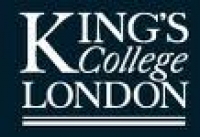There is an increased need in today's world to understand the security implications of scientific and technological developments. While science and technology have always affected national and international security, current developments in the fields of space, nuclear and biological weapons, and long-range missiles as well as work in such emerging fields as biotechnology and information technology suggest that the impact of science on security is becoming more diverse as well as more central to policy planners. At the same time, individuals and sub-national groups have more access to new technologies than ever before.
Our programme is designed to provide you with an integrated understanding of science and politics. This involves developing an understanding of the science underlying key weapons systems and technologies, the main concepts and tools of international politics and security studies, and the process by which scientists and policymakers can interact productively in the policy process. The goal is to equip you to be able to analyse the impact of current and future scientific developments on security.
You will have the opportunity to build on the compulsory modules to focus on aspects of the historical and contemporary international security environment through optional modules and a dissertation on an approved topic.
Our programme is designed for those who wish to work at the interface of science and security policy. It will be of specific interest to students with a 'hard science' background who also have an interest in security issues; students of politics, history, international relations and strategic studies; those with practical experience in the scientific field who may wish to reflect on the wider issues and implications of their experience or who may wish to make a career change from research to a policy-oriented field; and professionals in such areas as defence, diplomacy and foreign affairs who work on issues where science and technology set limits and offer opportunities to the policymaker.
Whilst this is not a vocational programme, students on our MA programmes have gone on to build careers in further academic research, NGOs, civil service, NATO, UN, media and publishing, finance and investment, teaching, and the armed forces.


